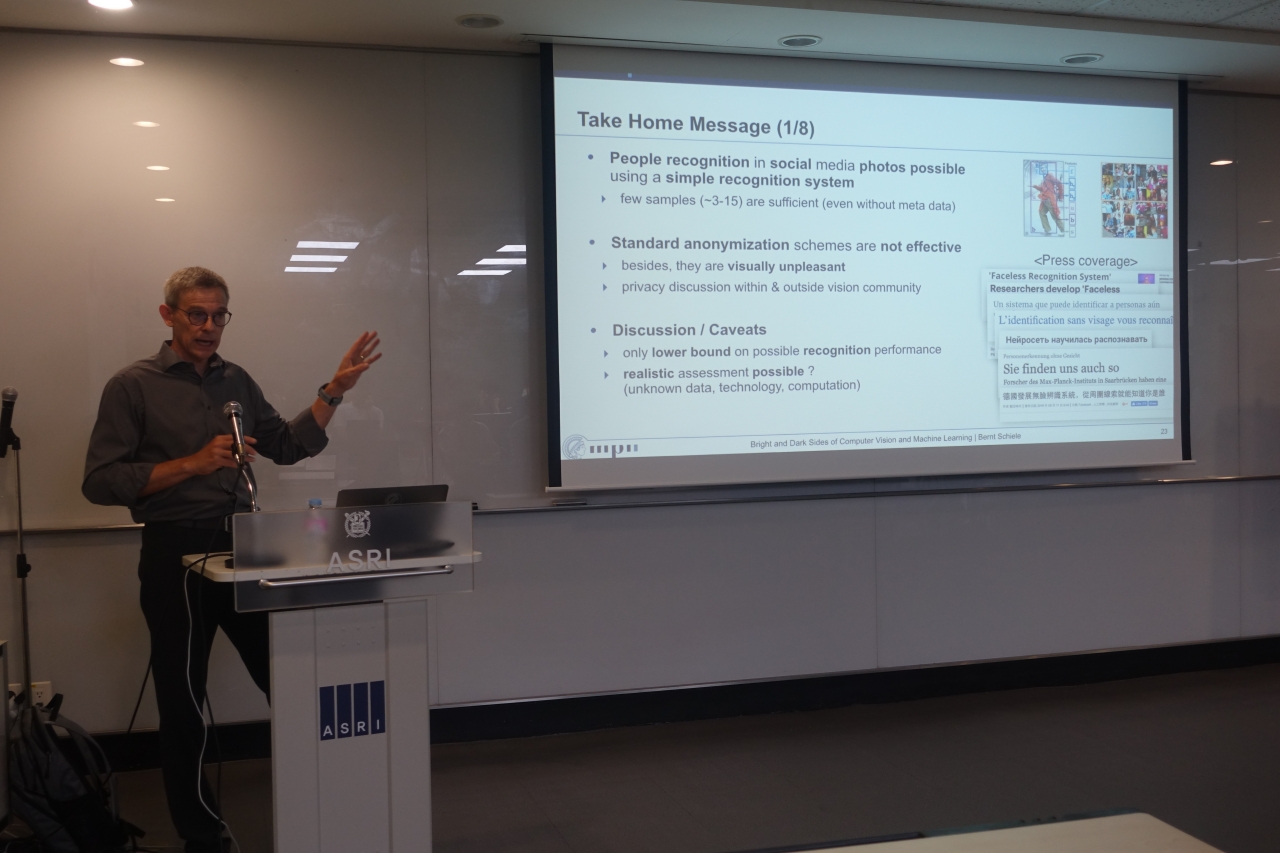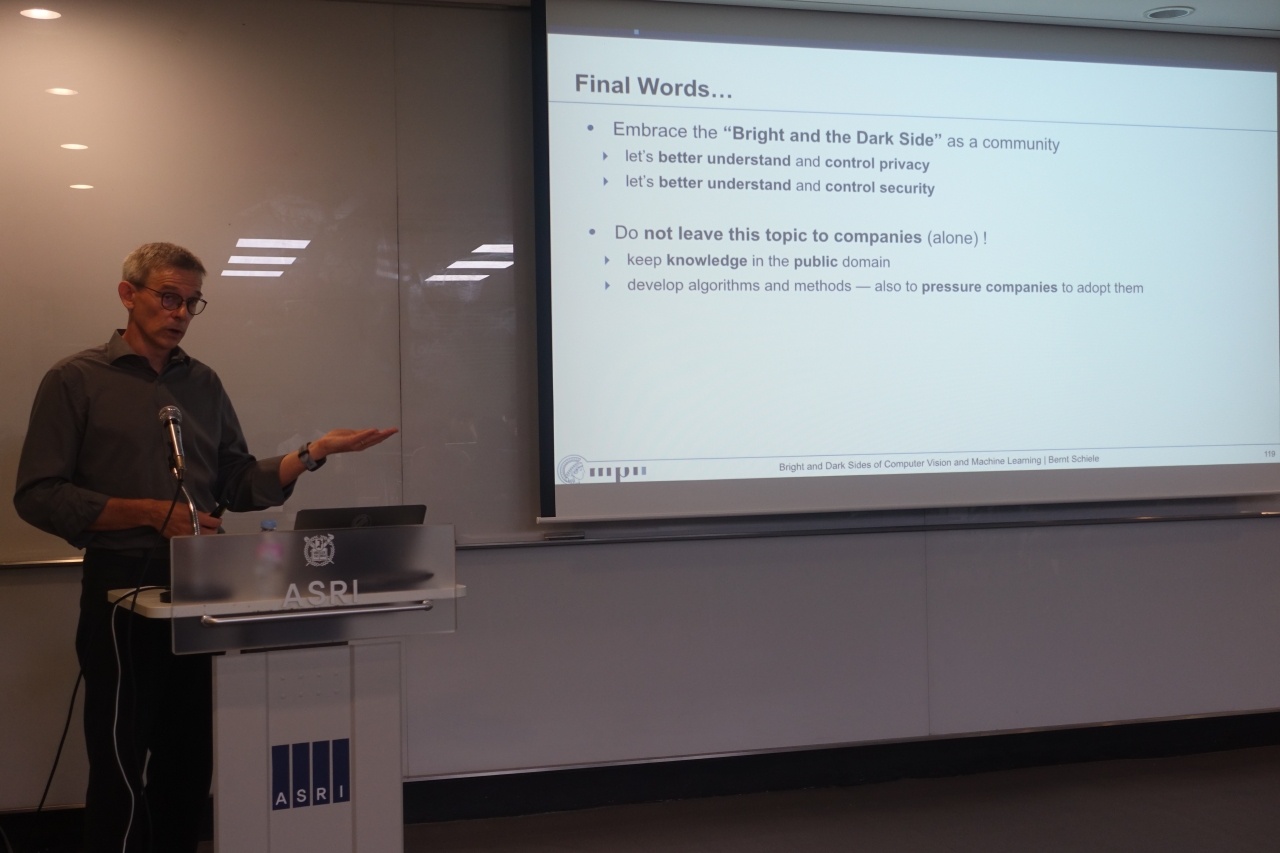Prof. Bernt Schiele gave an invited talk on August 12nd (Monday).
Presenter: Prof. Bernt Schiele
Title: The Bright and Dark Sides of Computer Vision and Machine Learning – Challenges and Opportunities for Privacy and Security
Abstract:
dramatically improved by using artificial neural networks. At the same time, more and more people share significant amounts of visual data e.g. in social networks. And while it is clear that visual data contains privacy relevant information, it is less clear which privacy implications visual data dissemination in the age of deep learning driven computer vision has and if and how it might be possible to control the leakage of privacy relevant information. Another challenge is the robustness of these algorithms against adversarial attacks and what that might imply for the deployment e.g. in autonomous vehicles. Last, but not least, I will discuss new insights about reverse engineering deep neural networks as well as stealing the entire functionality of them cheaply. While we are clearly at the infancy of understanding privacy as well as security implications of deep neural networks, the talks aims to raise awareness as well as to motivate more researchers to address these important challenges.
Biography:
Prof. Bernt Schiele has been Max Planck Director at MPI for Informatics and Professor at Saarland University since 2010. He studied computer science at the University of Karlsruhe, Germany. He worked on his master thesis in the field of robotics in Grenoble, France, where he also obtained the “diplome d’etudes approfondies d’informatique”. In 1994 he worked in the field of multi-modal human-computer interfaces at Carnegie Mellon University, Pittsburgh, PA, USA in the group of Alex Waibel. In 1997 he obtained his PhD from INP Grenoble, France under the supervision of Prof. James L. Crowley in the field of computer vision. The title of his thesis was “Object Recognition using Multidimensional Receptive Field Histograms”. Between 1997 and 2000 he was postdoctoral associate and Visiting Assistant Professor with the group of Prof. Alex Pentland at the Media Laboratory of the Massachusetts Institute of Technology, Cambridge, MA, USA. From 1999 until 2004 he was Assistant Professor at the Swiss Federal Institute of Technology in Zurich (ETH Zurich). Between 2004 and 2010 he was Full Professor at the computer science department of TU Darmstadt.







Recent Comments